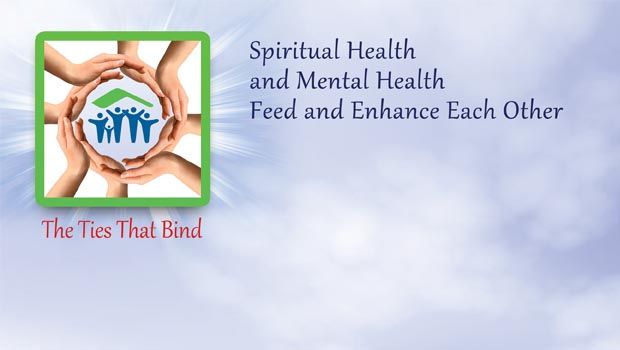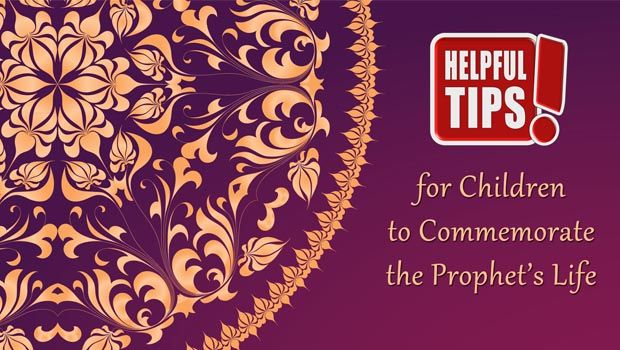The Messenger of Allah (peace be upon him) said: The strong believer is better and more beloved to God than the weak believer, while there is good in both. So always pursue that which is beneficial, always seek God’s assistance and never be incapacitated. If something happens to you do not say, ‘If only I had done this or that,’ but rather, say, ‘It is the decree of God, and He does what He wills.’ The phrase ‘if only’ opens the doors to the actions of the devil. (Narrated from Ab? Hurayrah in Muslim 4816, Ibn M?jah, Musnad Ahmad and others.)
The great master Ibn al-Qayyim describes these golden words as containing lessons “which no single person can afford to live without.” This important tradition speaks volumes to improving the quality and states of our personal lives. Its lessons apply equally to matters that are faith-based and worldly. The late Shaykh Uthaym?n remarked, “This is a great tradition that every human being should place before him as a shining lamp to illuminate one’s religious as well as worldly affairs.”
The Prophet, in this tradition, affirms strength as a great virtue and suggests some formidable measures to foster it in our lives. Although scholars have debated the type of strength intended, a review of the wording and context of the tradition lends support to the view of Ibn al-Qayyim and Im?m Nawaw? that it primarily refers to mental resolve and determination. For it is mental resolve that drives one to action, while its converse—mental irresoluteness—renders one lazy and incapable. The strong believer is thus more virtuous because of his/her greater ability to increase in works that engender closeness to God.
There is Good in Both
After establishing the virtue of strength, the Prophet added an important clarification —“there is good in both” — lest his words be misrepresented. Although a strong believer is better than a weaker one, let no one assume that there is no good in the lesser, for weak faith is better than no faith at all. So, let no one belittle others. Recognize and honor another person’s faith whatever its degree. The purpose of understanding virtues and merits in religious discourse is not to look down on or judge any one, but to establish moral principles and encourage believers. All texts of the Qur’?n and Sunnah that delineate virtues are intended to provide incentives for greater good, not to be cause for envy, arrogance, or divisiveness. Unfortunately, this principle is lost on many. We should, therefore, keep in mind that the Islamic teachings always aim to bring benefit.
Always Pursue that Which is Beneficial
In the above tradition, the Prophet gave specific andpractical instructions on cultivating strength in our lives. The first step is wide-ranging and applies to both worldly and otherworldly matters. Believers, especially strong ones, always seek out beneficial matters and conversely, abstain from those things which are not beneficial, or even harmful. The Prophet alluded to this important dictum on another occasion by saying, “Part of the perfection of faith is leaving things which don’t concern us.” If practiced, this principle would make for lives that are more fulfilling and less prone to conflict. As Ibn al-Qayyim aptly noted, “Happiness for human beings lies in guarding what benefits them in this world and the next.”
Always Seek God’s Assistance
What is mentioned next is quite profound in its sequence. Strength is a personal quality that is nurtured by our own efforts. Even the first means suggested by the Prophet, seeking out benefit, is related to our own efforts and choices. This has the potential to make a person arrogant and proud of his own efforts and qualities; hence the reminder to call upon God. How timely and appropriate! For the one who is strong and full of resolve, who volitionally seeks out beneficial matters, might forget God due to the delusion of self-sufficiency. So an apt reminder is to call upon Him always, even when we are strong! God is truly in charge of everything, and all else is a delusion, as the poet Ab? Fir?s al-Hamd?n? [d 357/968] said:
When God aids you not in what you ask
No other creation then can find a way.
And if He steers you not in every task
Lost you are, though Arcturus himself lead your way.
(Arcturus is the brightest star in the Northern Hemisphere.)
The lesson is to be strong and take concrete steps to help yourself, but at the same time to never forget to seek God’s assistance, for He is truly the source of strengthand every other resource.
Never Be Incapacitated
The third advice has to do with the absence of strength. Too many people become passive, lazy or weak in the name of relying on God. Therefore the instruction is to never adopt an attitude of incapacity or powerlessness. Be strong and assertive, practically seeking out benefit and then calling upon God, all the while acting in a proactive manner. This mirrors the Prophet’s famous instructions to the Bedouin who wanted to leave his camel outside of the mosque in the name of relying on God: Tie your camel and then trust in God.
Do Not Say ‘If Only I Had Done This or That’
Human affairs often don’t proceed as planned, and life is full of surprises. After you have adopted a position of strength, having done all that you can, seeking benefit, calling upon God, and being proactive, and still things don’t go as planned, do not indulge in empty lamentation. Rather, know that God is in charge and controls the destiny of all things. We remind ourselves of the higher purpose and wisdom in everything. “And you cannot will it, except as God wills, for He is full of Knowledge and Wisdom (Qur’?n 76:30).Excessive dwelling on the past is unhealthy and leads to regret, sadness, and mental insecurity. Consider that the Qur’?n, after relating the long story of the Prophet Ibr?h?m, remarks:“But that was a nation that is gone. For them is what they earned and to you is what you earn. And you will not be asked about what they used to do”(Qur’an 2:134).
The words “if only” have been aptly described as “the two saddest words in the world,” and the Prophet ended the above tradition by teaching us that these words open the door to Satanic whisperings and great insecurity in the mind. Dwelling on the past can lead to feelings of blame, regret, sadness, anger, frustration, insecurity, etc. Rather than dwelling on the past, let us cultivate strong faith and mental resolve, always seek that which is beneficial for ourselves as well as others, call upon Allah SWT for assistance while guarding ourselves against any manner of incapacity, and foster within ourselves a proactive and forward-leaning orientation. The golden words of the above tradition are an invitation to strengthen our belief and faith in every way possible. We will be well-served to heed its advice.






